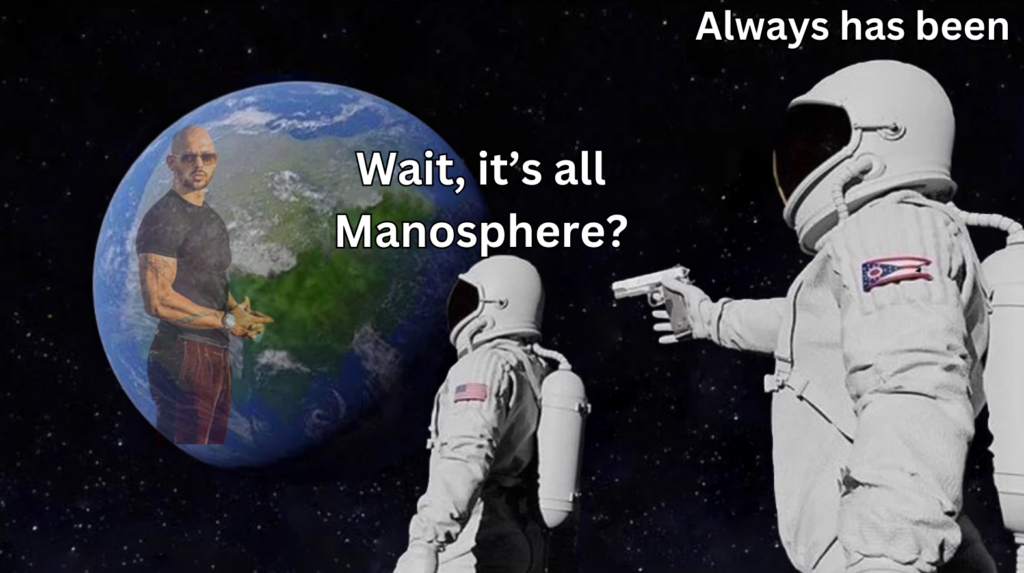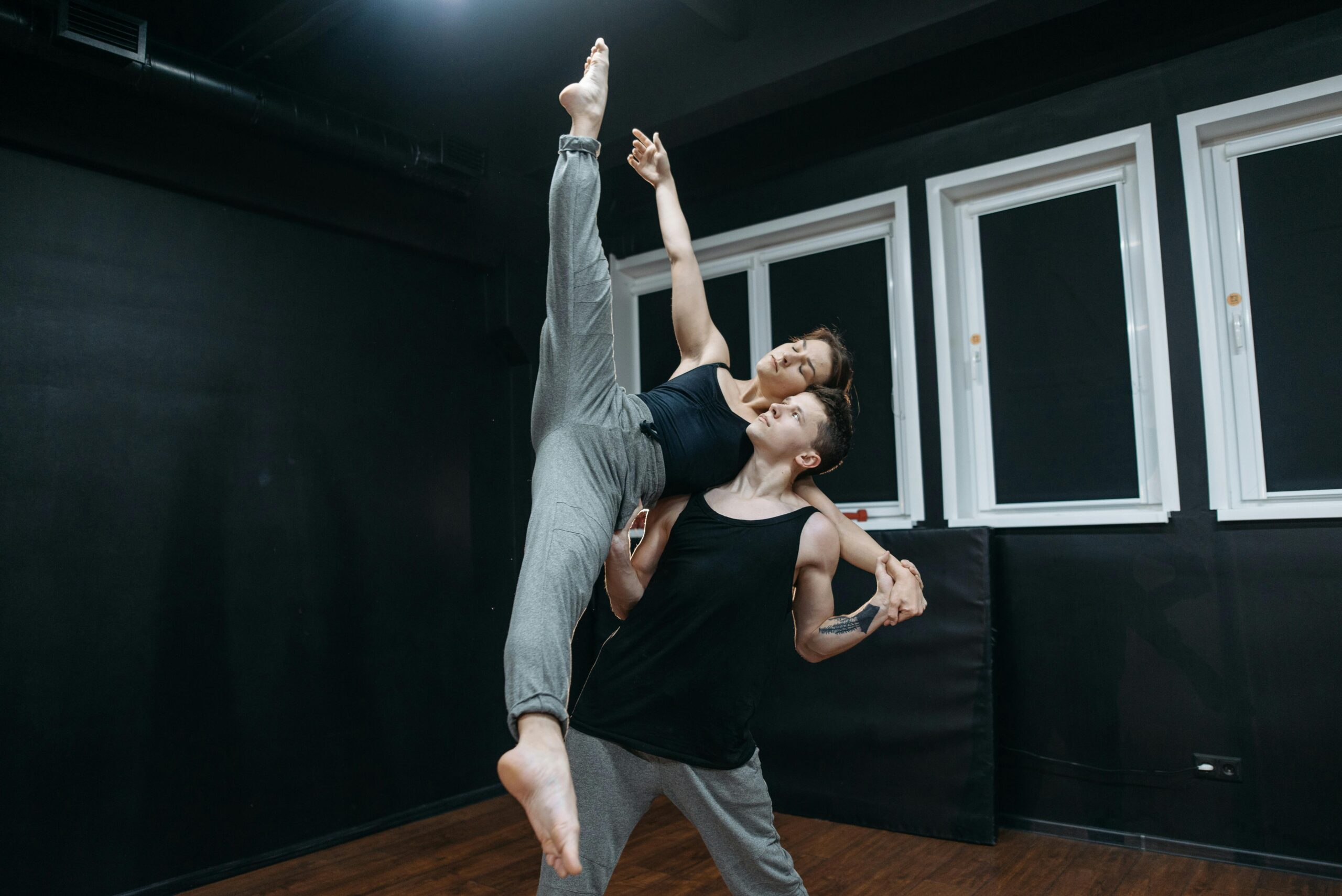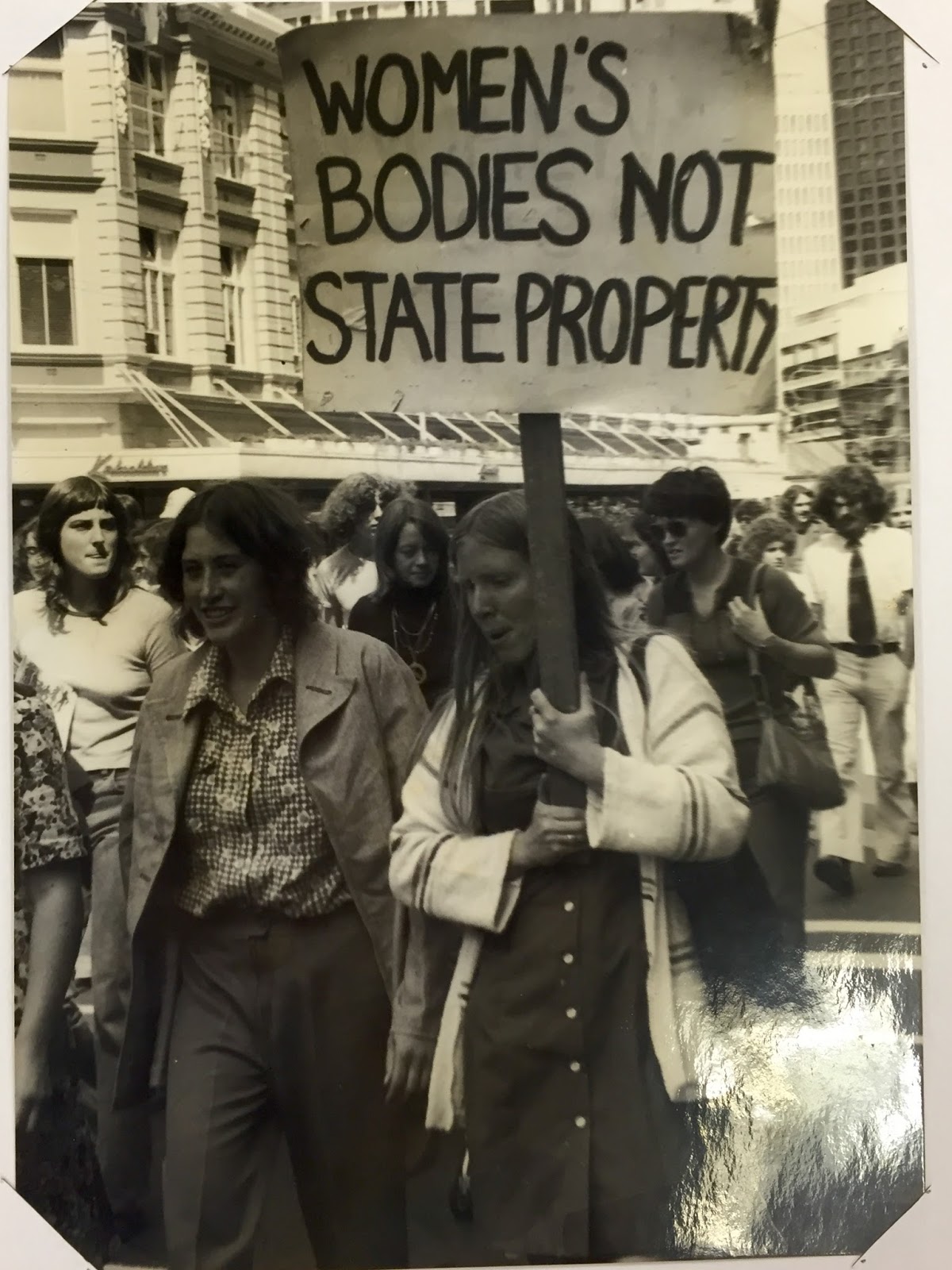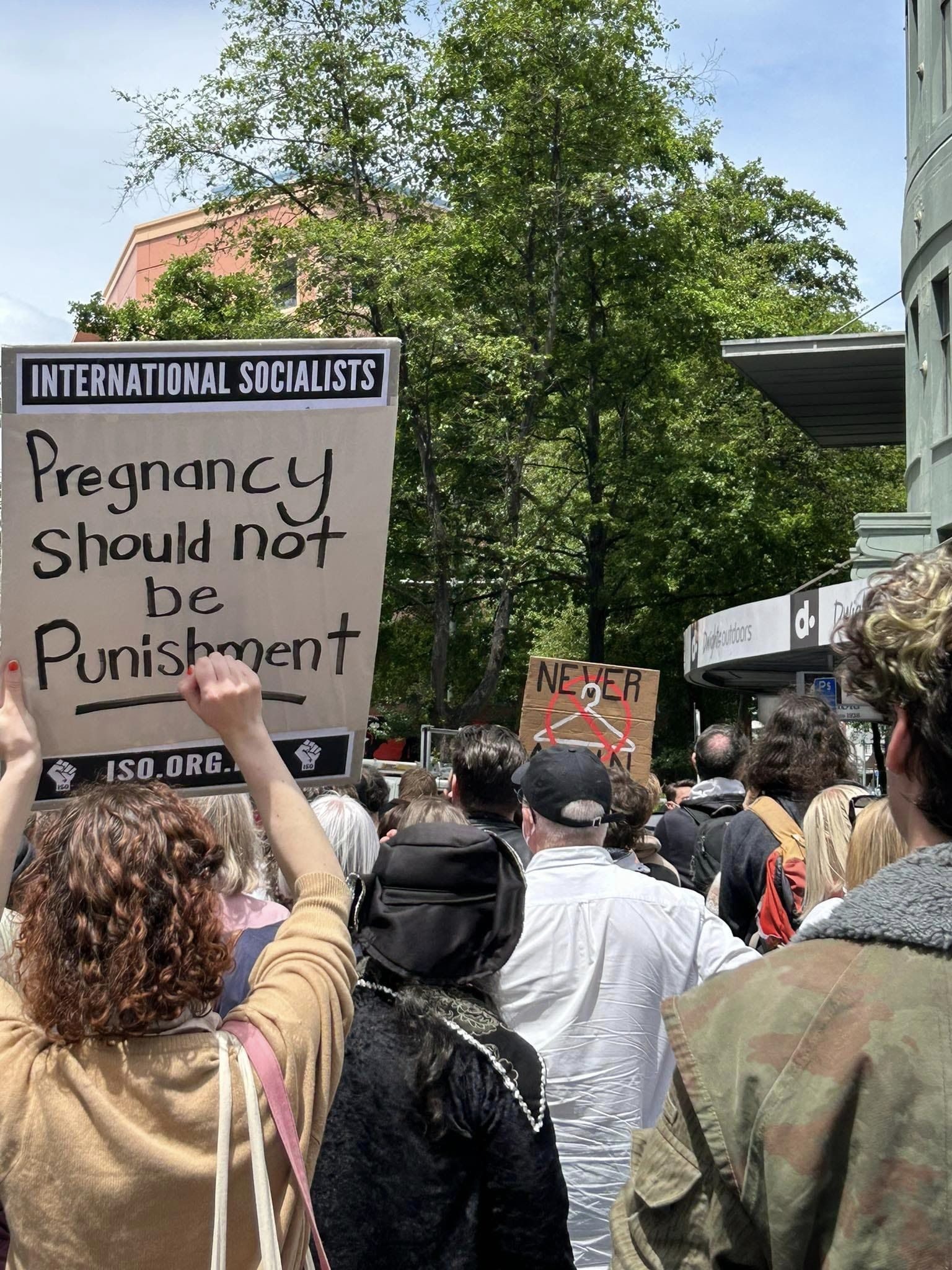“I knew one day I’d have to watch powerful men burn the world down – I just didn’t expect them to be such losers” – Rebecca Shaw
Recently, I saw people questioning why there was any focus on the “tech-bro” identities of US oligarchs Elon Musk, Mark Zuckerberg and Jeff Bezos. The implication was that if these ghoulish capitalists were women, we should hate them all the same. I understand the instinct to push back against the liberal feminist notion that women holding these positions of immense power would be a mark of progress, however, I think this overlooks a key point. The intentional re-branding of these billionaires as bros is in fact central to the political and social project that they’re taking part in, which is the mainstreaming of the ‘manosphere’, a formerly online movement promoting misogyny and opposition to feminism.
The manosphere movement has its roots in the 1970s men’s rights movement which attributed men’s problems to feminism and women’s empowerment. It was turbocharged with the growth of the internet, with the term “manosphere” itself being a variation of “blogosphere”, and gaining recognition through promotion by Ian Ironwood, a pornography marketer, who compiled a collection of blogs and forums into a book titled The Manosphere: A New Hope For Masculinity. The term became more commonly used in the media associated with stories about men involved in misogynist violence, sexual assault, and online harassment.
Through to the early 2010s the Manosphere was a ragtag group of discontents calling themselves “involuntary celibates”, “pick-up artists”, and “men’s rights activists”, who spent their time harassing women for trivial things such as playing video games. It serves as an entry point to right-wing politics for many young boys and men, who are explicitly taught that women are below them on a rigid hierarchy, and that left-wing ideologies which challenge hierarchy and traditional masculinity are the cause of the dysfunction in society that prevents them from living the lives they were promised. Once they internalise this hierarchy, they can easily be led to add other components, such as racial and religious divides. Much of their rhetoric is intentionally edgy to provoke maximum outrage and attention, but also to blur the line between ‘jokes’ and their genuine beliefs.
In his 2013 book Angry White Men, sociologist Michael Kimmel described this phenomenon as “aggrieved entitlement”: the resentment and defensiveness felt by members of a dominant group when they perceive a threat to their privileges or status. Yes, they direct this hatred at others, primarily women and minorities, but also at themselves, self-flagellating for not performing gender well enough, and believing that they need to become more traditionally masculine to attract women and win the respect of other men.
By 2016, the Manosphere could feel itself clawing into the mainstream, rallying behind Donald Trump as a symbol of traditional masculinity and a counter-cultural force hostile to the liberal cultural hegemony that they felt oppressed by. Where the #MeToo movement drew awareness to how widespread the issues of sexual abuse and harassment are, the Manosphere deflected with stories of false-accusations and the insinuation that the movement was a feminist plot to emasculate all men. Without sustained mobilisation or material power changes, movements like #MeToo have been unable to defend against right-wing retaliation which paints them as boogeymen in a culture war. The right then position themselves as counter-cultural figures, despite siding with wealth and power at every point.
By the 2020s, Kimmel’s term “Angry White Men” was already outdated. The movement had become decidedly multi-racial and the most prominent figures leading the charge against feminism were now Black men: Kevin Samuels, Fresh & Fit podcast, and most famously, Andrew Tate. Tate was selling courses on how to isolate young women then manipulate them into sex work to take their earnings, also known as sex trafficking, and going viral for extreme misogynistic views such as the belief that women are the property of men. Shock value may be the draw, but the content frequently crossed over into self-help, with Tate’s courses marketed as “physical, mental, emotional, spiritual, and financial development”. We’ve seen machismo figures show off flash cars and undersized t-shirts before, but now young men with voids in their lives genuinely see these figures as mentors who care about them. And this time, they actually can join in on Tate’s success – by paying NZD$14,000 to be added to the sex trafficking tutorial group chat.
By 2022, Tate was on the radar of community advocates in New Zealand, with parents and teachers concerned about the extreme misogynistic behaviour of teenage boys who had consumed his content. An Australian survey at the time found that 36% of teenage boys found Tate to be relatable. His videos were spreading like wildfire, and being arrested for sex trafficking and rape, which he had already confessed to online, only galvanised his support, as he claimed that he was being targeted by the “The Matrix” for telling young men the truth.
Coinciding with Tate’s rapid rise was the defamation trial between Johnny Depp and Amber Heard, centred around Heard writing an op-ed in which she mentioned that she had been physically abused in a past relationship. Depp had previously lost this case in the United Kingdom, but pursued another suit in Virginia, where his legal team fought for the trial to be livestreamed. The public attention was astronomical. Data showed that over a six-week span the story drew more views per article than any topic, including the leaked Supreme Court draft opinion on abortion, Elon Musk’s acquisition of Twitter, and the Russian invasion of Ukraine.
The sentiment on social media was clear. Heard was called grotesque, a liar, an attention seeker, a whore, and above all – the real abuser. The sheer scale and co-ordination of the extreme daily vitriol is something that I have never witnessed before. At the conclusion of the trial, #JusticeForJohnnyDepp videos had racked up 18 billion views on TikTok. It’s hard to believe that the jury, who were not sequestered, would not have been exposed to such an outpouring.
Heard lost the case and was found liable for defamation. More importantly, the case was successfully used to cast scepticism on the entire #MeToo movement, and to remind women of the abuse and ridicule they can expect if they dare to speak up. Stanford Law Professor Michele Landis Dauber stated that “allowing this trial to be televised is the single worst decision I can think of in the context of intimate partner violence and sexual violence in recent history.”
With the machine tuned to harass women, trivialise misogyny, and retaliate against progressive social movements, the lead-up to the 2024 United States election saw the Manosphere coalesce to play a key role in turning the social media tide for Trump. Immediately after the election, Manosphere figures began posting “your body, my choice”, mocking the reproductive rights and sexual consent slogan “my body, my choice.” Andrew Tate chimed in to say “I saw a woman crossing the road today but I just kept my foot down. Right of way? You no longer have rights.”
The coalition of misogyny is wide and diverse – it places tech-bros alongside religious zealots alongside pornographers. The only prerequisite – which overcomes these differences and brings them together – is hating women, feminism, and progressivism. Even women themselves are permitted to join if they play their role in legitimising the hierarchy.
No longer fringe internet culture, Manosphere ideas and figures appear on the largest platforms and alongside the world’s most powerful people. Jeff Bezos and Mark Zuckerberg have rebranded from liberal nerds to “bros” while rolling back their companies’ discrimination protections. Zuckerberg appeared on the Joe Rogan Podcast to claim that we’ve been “neutered by feminine energy” – a stance that Andrew Tate himself took credit for. Tate has been freed from Romania after Trump officials took interest in his case, and is now in the United States getting VIP treatment at major events. Elon Musk, who has sexual misconduct allegations of his own, frequently interacts with Tate. Kanye West gleefully posts that he beats women and “agrees with everything Andrew Tate has ever said”. All of them take part in the ritualistic humiliation and degradation of women to ensure that perpetrators of abuse never face repercussions, and that the hierarchical logic of capitalism remains unchallenged. There is no mass counter-movement to this wave of sexism, which is another reason that their attempts to paint themselves as underdogs are so boring.
I feel sad for the young men who fall victim to these shitty ideas, and sadder for the women who have the misfortune of interacting with them. The dominant worldview that positions men and women as adversaries, and women as sex objects, robs us of the ability to experience the full humanity of others and ourselves. It takes rigorous unlearning to overcome. You must constantly push back against it.









